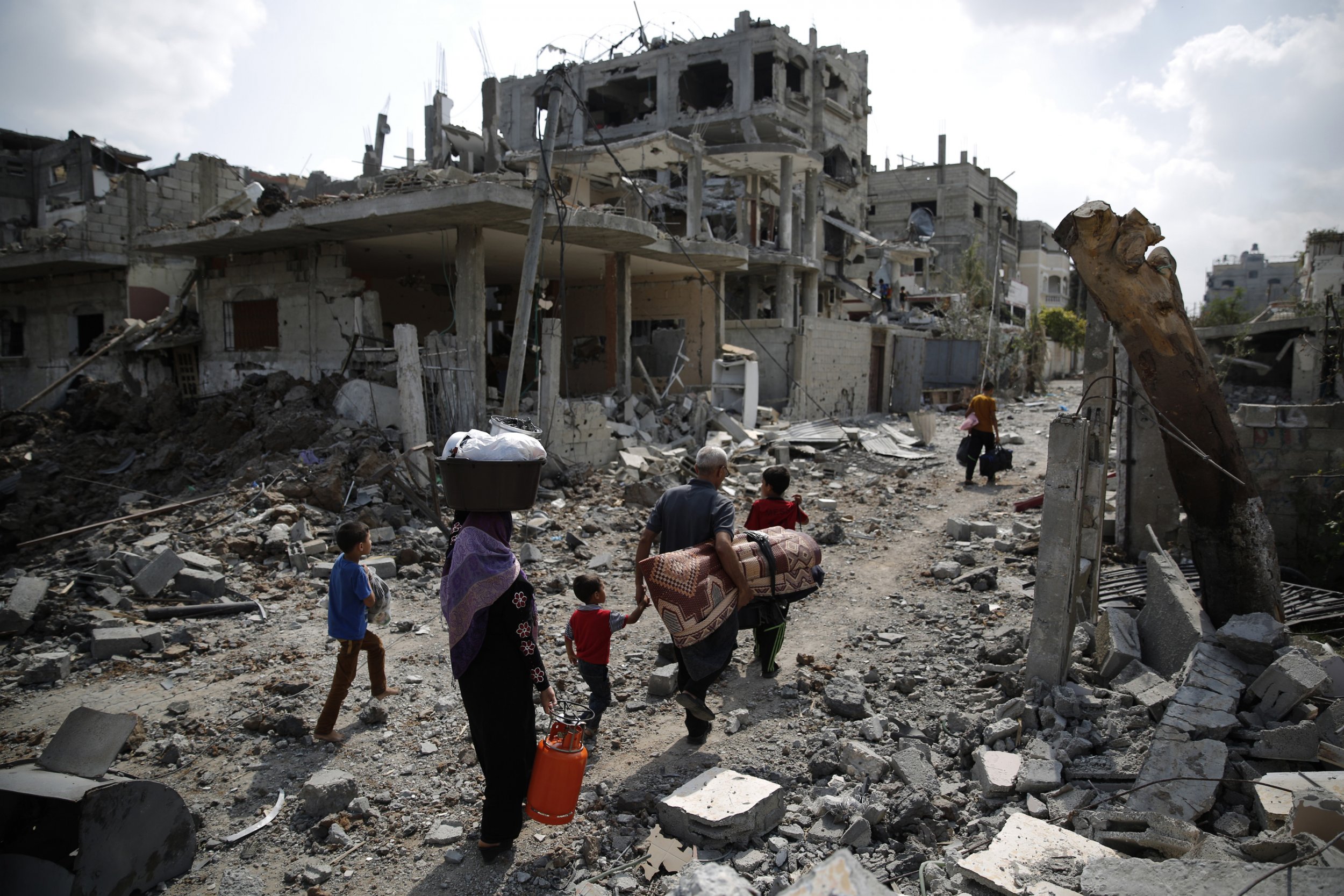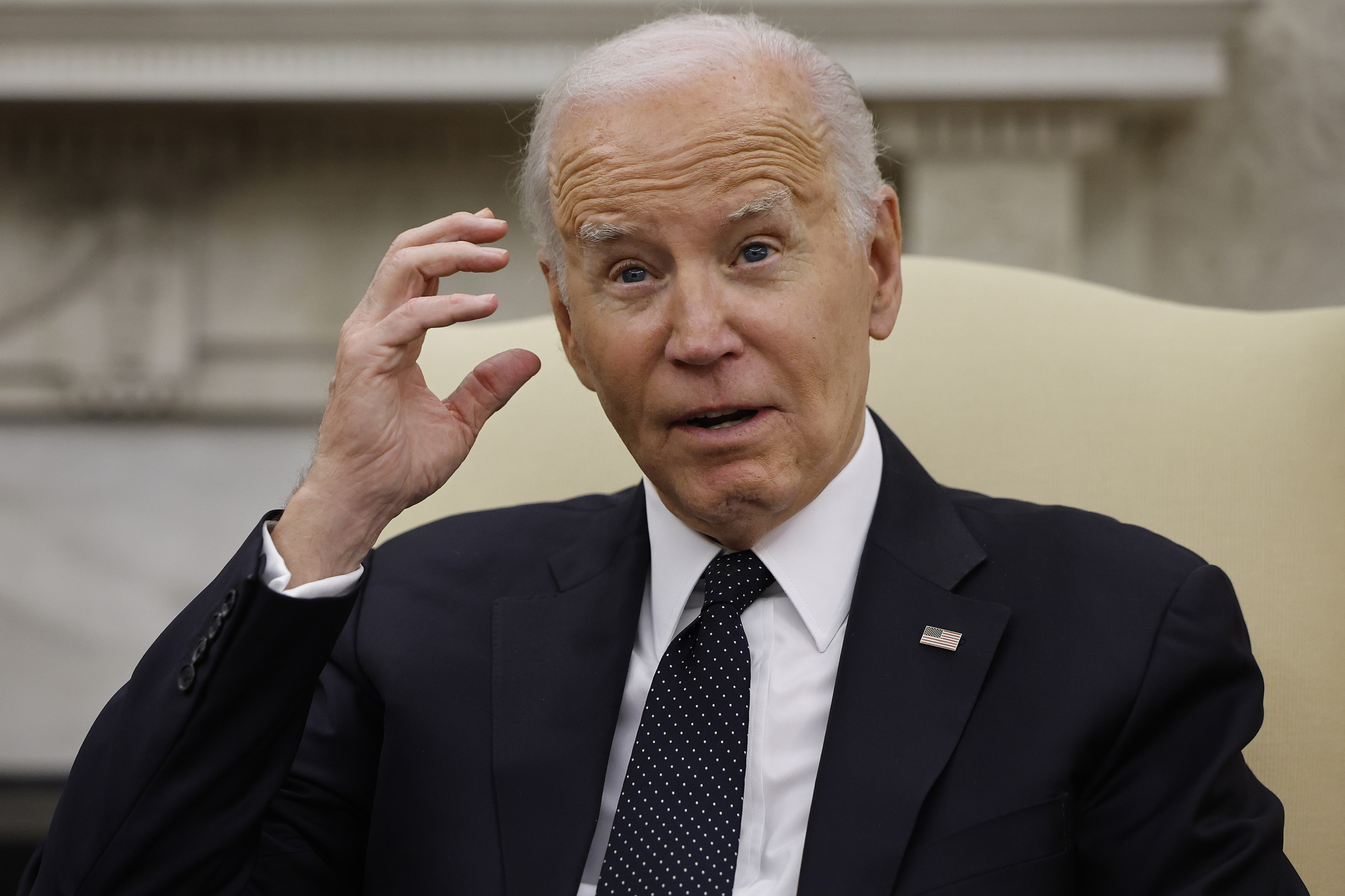
It was a bold, quixotic idea, nudged forward by the destruction of the Gaza Strip. But the initiative failed, and the crowded territory is still in ruins.
When the war between Israel and Hamas ended last summer, American diplomats approached their French, British and Jordanian counterparts with a plan. They wanted to pass a United Nations resolution, putting Palestinian President Mahmoud Abbas in charge of rebuilding Gaza. Donors from around the world had pledged more than $5 billion to repair the battered strip, and the feeling was that Abbas could speed up the recovery. If the plan worked, the diplomats hoped, Abbas could eventually take over the tiny coastal enclave, ending Israel's repeated wars with Hamas, the Islamic group that controls it.
There was little indication that Abbas could defeat Hamas militarily. But the diplomats involved thought they could pressure the two sides to at least let the Palestinian president take control of the area's border crossings. "It was a good idea," said a Western diplomat, who asked not to be identified because of the sensitivity of the matter. "We thought it could start moving things in the right direction."
By September, as world leaders prepared to meet in New York, the Americans, Europeans and Jordanians felt the resolution had momentum. Later that month, the Israelis debated the plan for 10 hours and remained undecided. But by the time they emerged from their meeting, it no longer mattered. Abbas surprised all parties involved by rejecting the plan. Among other things, he feared, the resolution could wind up antagonizing Hamas and hurting his party's popularity at a time when the Palestinians were negotiating a unity government.
"It was just two weeks after the war," said Riyad Mansour, the Palestinian ambassador to the U.N. Officials in Ramallah, he said, thought signing the agreement "would [make it] look as if the Palestinian Authority is collaborating" with other nations against their national interest.
Today, as a harsh winter rips through the narrow coastal strip, the reconstruction effort remains at a standstill. Many Gazans are living in makeshift shelters, and Egypt has closed the Rafah crossing, preventing people and goods from moving back and forth. Recently, the artist Bansky produced a video highlighting the suffering of Palestinians, declaring, "No cement has been allowed into Gaza since the bombing." As the misery continues, a blame game has begun as to who's responsible. In a rare move, 30 U.N. bodies and nongovernmental organizations active in Gaza recently said Israel was "the main duty-bearer" for the slow reconstruction effort.
Yet the battle over the U.N. resolution offers a more complex picture into why the rebuilding effort has stalled. As Haaretz first reported, and Newsweek confirmed, in a closed-door meeting in Jerusalem this week, diplomats from five leading European countries noted "positive progress" on the Israeli approach to reconstruction, as the Jewish state has been easing its restrictions on goods being transferred into Gaza. The diplomats, instead, largely blamed Palestinian infighting, Egyptian restrictions and the failure of donor countries to deliver the funds they pledged last fall.
To be sure, Israeli bombs caused the bulk of the damage in Gaza last summer in a military assault that was designed to end rocket barrages from the Strip. And some current delays can be attributed to Jerusalem, which is concerned that Hamas militants will build more tunnels and use them to smuggle weapons and mount new attacks against Israel. "Our working assumption is that some stuff is being siphoned off toward rebuilding the tunnels," Peter Lerner, the Israeli military spokesman, said, noting that a Hamas spokesmen publicly "boasted" about tunnel reconstruction.
In recent weeks, however, the Israelis stepped up deliveries of construction materials, as well as of food, medicine and water, into Gaza. "I have seen a change in the Israeli attitude after the war," Robert Serry, the U.N. coordinator in Israel and the Palestinian territories, told PBS. "I think the war made at least some in Israel realize that continuing a blockade, continuing to squeeze Gaza, is leading from bad to worse."
Nevertheless, the rebuilding effort in Gaza continues to stall. Serry, who is soon to leave his post, said last week, "To date, 72,000 people have been cleared [by Israel and the U.N.] to receive construction material." Yet "many of those who now have access to building material lack the money to buy them or carry out the works," he added. And only "a small percentage of the $5.4 billion pledged has been disbursed. This is, frankly, unacceptable."
In an earlier document, the Gaza Reconstruction Mechanism (GRM), a U.N. body supervising the rebuilding efforts, reported that 70,672 tons of construction material had been imported in 1,760 truckloads by 18 approved Gaza vendors as of February 24—including more than 40,000 tons of cement. Israel and the U.N. have approved the vast majority of requests for construction materials, according to the GRM, but the process of vendor approval and transferring funds from Ramallah to Gaza has been slow. The reason, according to officials who follow the reconstruction efforts (but asked for anonymity to discuss the matter frankly): bureaucratic squabbling inside the Palestinian Authority, and between the Authority and officials in Gaza.
Just before the Gaza war erupted, officials from Abbas's Palestinian Authority and Hamas tried to reconcile their differences. Mansour, the Palestinian envoy, said that Abbas rejected the Security Council initiative last September, in part because he worried it would hamper the negotiations.
Aaron Magid, a Harvard researcher on Israeli and Palestinian affairs, noted that Abbas has repeatedly asked the U.S. and other world powers to intervene and help the Palestinians. "But when offered a U.N. Security Council resolution that calls for an increased supply of goods into Gaza, he hesitated and rejected the proposal," Magid said.
Last winter, the attempt to unify the Palestinian leadership fizzled as the two sides bickered over who would pay the salaries of Hamas officials in Gaza. The dispute has partially been resolved, but Serry called the unified leadership a "make-believe government."
This week, tensions between the two main Palestinian factions reached a crescendo, as forces loyal to Abbas's Palestinian Authority arrested dozens of West Bank-based Hamas supporters. The Authority offered no explanation for the arrests, which a Hamas spokesman said violates prior agreements meant to unify the two groups. In the meantime, Gaza's reconstruction continues to succumb to the same internal divisions that have plagued Palestinians for nearly a decade.
Follow Benny Avni on Twitter: @bennyavni
Uncommon Knowledge
Newsweek is committed to challenging conventional wisdom and finding connections in the search for common ground.
Newsweek is committed to challenging conventional wisdom and finding connections in the search for common ground.
About the writer
To read how Newsweek uses AI as a newsroom tool, Click here.






